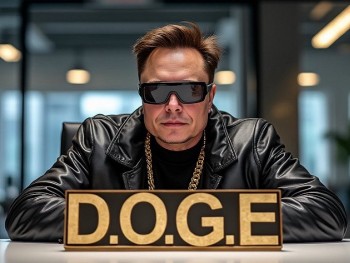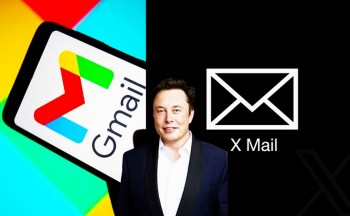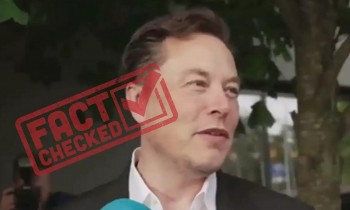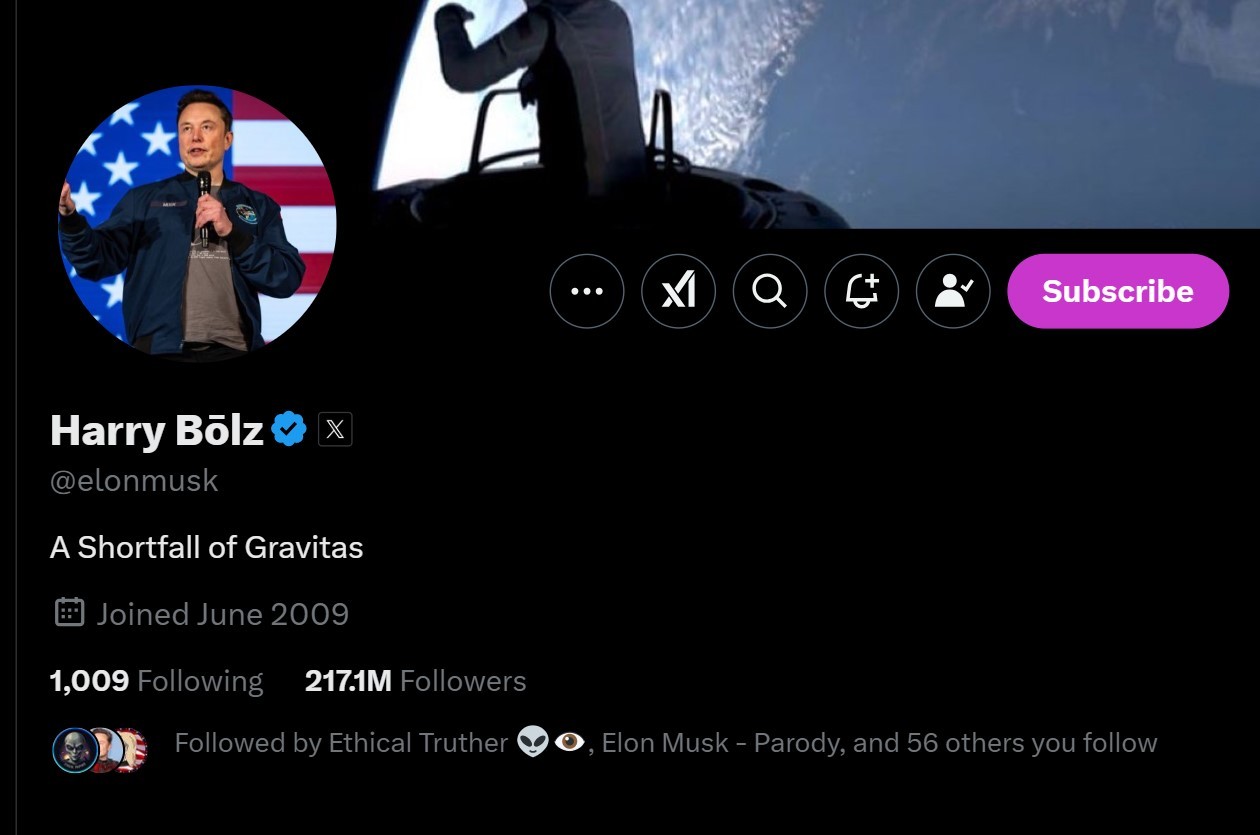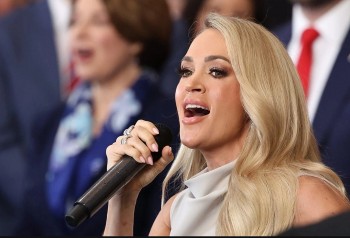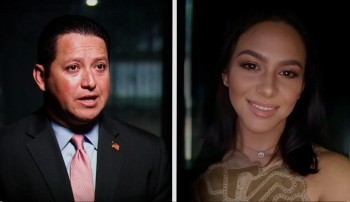Is Donald Trump just the vice President to 'President Elon Musk'?
Elon Musk, the maverick entrepreneur behind Tesla, SpaceX, and X (formerly Twitter), has always been a polarizing figure. Over the past few years, his influence has extended far beyond the realms of technology and business into the heart of American politics.
His involvement in Donald Trump’s 2024 presidential campaign and his subsequent nomination to a key government role have raised questions about Musk's growing power, his unpredictable style of leadership, and whether he might one day aim for the presidency himself.
| "The new one is President Trump has ceded the presidency to Elon Musk. No, no, that's not happening" president-elect Donald Trump said |
 |
| Elon Musk |
Elon Musk’s Role in Trump’s 2024 Presidential Campaign
Elon Musk’s political affiliations have always been enigmatic, shifting between libertarian ideals and public support for figures across the political spectrum. However, his active involvement in Donald Trump’s 2024 presidential campaign signaled a new chapter in his political evolution.
| These remarks come amid criticism from Democrats who suggest that Musk holds significant sway over the incoming administration, with some even dubbing Trump as "vice president" to "President Musk." |
Massive Financial Contributions
Musk reportedly donated over $277 million to Trump’s campaign and other Republican candidates during the 2024 election cycle, making him the largest political donor in U.S. history. Beyond simple financial contributions, Musk funded a social media blitz on X, amplifying Trump’s campaign messaging and leveraging his platform’s algorithm to favor pro-Trump content.
Innovative Campaign Strategies
In a move emblematic of his unconventional approach, Musk introduced a series of incentives designed to boost voter turnout. Among his boldest ideas was offering Tesla discounts and even free Cybertruck test drives to individuals who could prove they had registered to vote. Musk also floated the idea of funding “space tourism trips” for high-profile influencers willing to publicly support Trump’s campaign, though this remained more of a publicity stunt than a concrete plan.
| The South African-born Musk – the world’s richest person according to Forbes Magazine – became one of Trump’s biggest supporters in the run-up to the election, endorsing the president-elect in July following an assassination attempt and pumping an estimated $200m into a Political Action Committee (PAC) supporting Trump. He has since been tapped by Trump to lead a proposed Department of Government Efficiency (DOGE), tasked with taking a slash-and-burn approach to federal government spending. |
Grassroots Mobilization via Technology
Musk spearheaded a technological campaign arm called “VoterHub”, which integrated AI-powered tools to analyze voter behavior and recommend tailored outreach strategies. This platform reportedly played a critical role in galvanizing support among independent voters, especially tech-savvy millennials and Gen Z voters who were skeptical of traditional political campaigning.
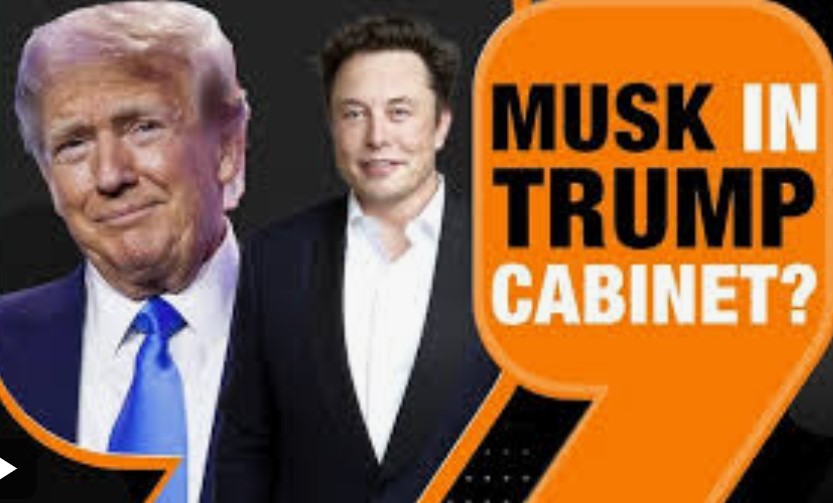 |
| Elon Musk in Trump's Cabinet |
Musk’s Role in Trump’s Cabinet: From Business Tycoon to Government Official
Following Trump’s victory in the 2024 presidential election, Elon Musk was nominated to head the newly established Department of Government Efficiency (DOGE). While technically not a full-fledged cabinet role, DOGE was created to streamline federal operations, cut bureaucracy, and integrate cutting-edge technology into government systems. Musk’s appointment reflected Trump’s desire to bring private-sector efficiency into public administration.
Innovative Policies and Controversial Proposals
As DOGE leader, Musk wasted no time proposing radical changes. Among his most notable initiatives:
- AI Integration in Government: Musk proposed replacing certain federal roles with AI systems, arguing that it would reduce inefficiency and corruption. This sparked backlash from unions and privacy advocates.
- SpaceX Partnerships: Musk leveraged his position to propose government contracts for SpaceX, including ambitious plans for a lunar colony funded partly through public-private partnerships.
- Decentralized Government Systems: He introduced blockchain-based systems for public record-keeping, suggesting that this would make federal operations more transparent and secure.
However, Musk’s leadership style—marked by erratic public statements and a preference for working outside traditional government norms—alienated some members of the Trump administration, fueling speculation about tensions between Musk and more conservative elements of the Republican Party.
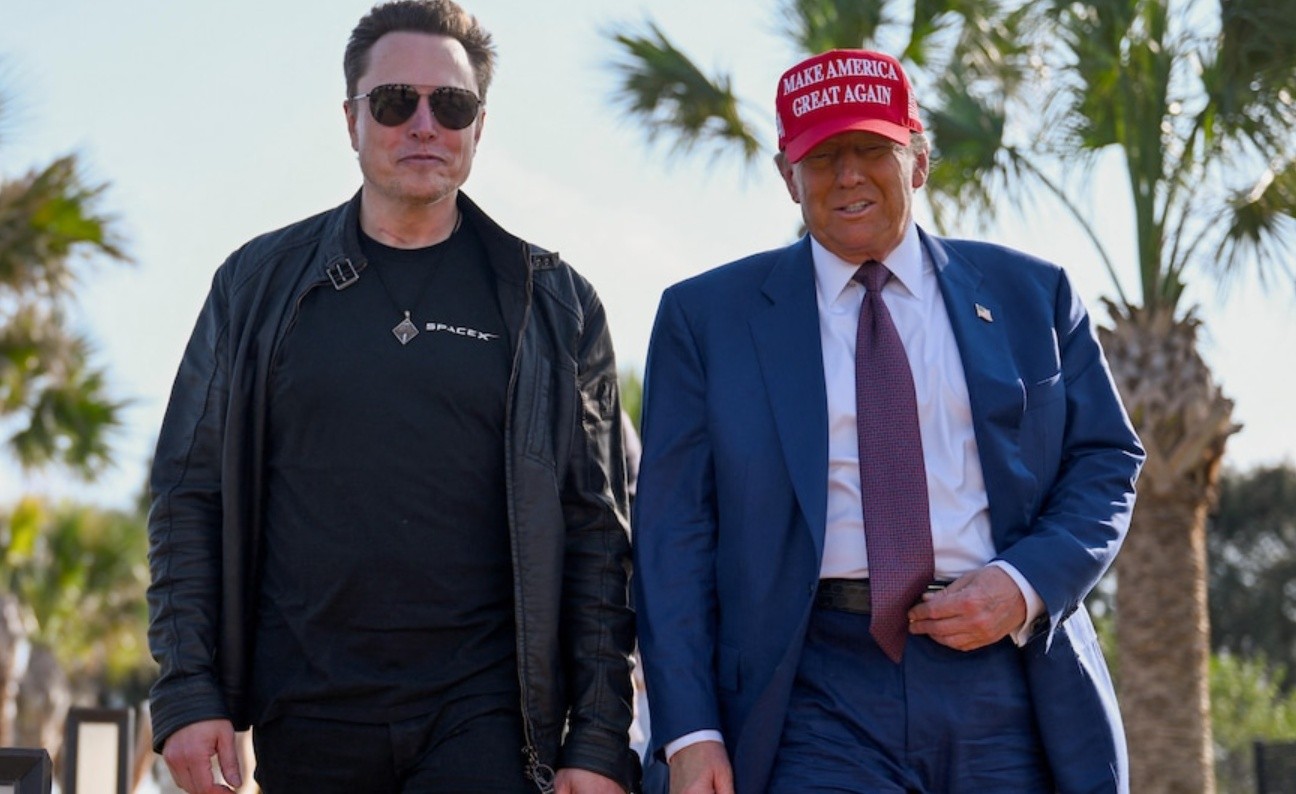 |
| Elon Musk and President elect Donald Trump |
Musk and the U.S. Government Shutdown Crisis
Musk’s tenure as DOGE leader became even more significant during the government shutdown crisis of late 2024. A deeply divided Congress failed to agree on a spending bill, pushing the U.S. government to the brink of financial collapse. Musk’s role during this crisis revealed both his ingenuity and his unpredictability.
Proposing Bold Solutions
When negotiations stalled, Musk proposed using his personal wealth and corporate resources to temporarily fund essential government operations. While this idea was dismissed by lawmakers as impractical and possibly unconstitutional, it underscored Musk’s willingness to intervene in national crises.
| "He's not going to be president because he was born in South Africa." President elect Donal Trump said |
Advocating for a “Tech-Driven Bailout”
Musk suggested that the government could issue bonds tied to future technological advancements, such as breakthroughs in renewable energy or AI. Though the proposal never gained traction, it highlighted Musk’s belief in tech-driven solutions to political problems.
The Fallout
Musk’s actions during the crisis earned him both praise and criticism. While some viewed him as a visionary willing to think outside the box, others saw his interventions as overreach, accusing him of attempting to usurp democratic institutions for personal gain.
The Future of Elon Musk in U.S. Politics
Musk’s tenure in the Trump administration has solidified his position as a major political figure, but his future ambitions remain a topic of intense speculation.
Unpredictable Leadership Style
Musk’s penchant for making controversial statements—such as calling for the privatization of certain federal agencies or mocking political opponents on X—has made him a polarizing figure. While his supporters admire his transparency and boldness, critics argue that his unpredictability is incompatible with effective governance.
Speculations About a Presidential Run
The U.S. Constitution prohibits Musk from running for president, as he was born in South Africa. However, this has not stopped his supporters from advocating for a constitutional amendment to allow naturalized citizens to hold the highest office. Musk himself has remained coy on the subject, joking in interviews that he would “build a Martian colony first before worrying about Earth politics.”
A Kingmaker in Politics?
Even if Musk cannot run for president, his influence as a political donor, strategist, and policy advocate is likely to grow. With his massive social media platform and vast financial resources, Musk could become a kingmaker in future elections, shaping the political landscape from behind the scenes.
| Could Elon Musk Ever Be President? The idea of Elon Musk becoming president remains highly improbable under current constitutional law. However, his influence within American politics is undeniable. Whether through his role in the Trump administration, his financial contributions to campaigns, or his technological vision for government, Musk is reshaping the boundaries of what it means to wield political power in the 21st century. If nothing else, Musk’s political journey serves as a case study in how private-sector leaders can influence public governance. While the possibility of a Musk presidency may remain a distant dream (or nightmare, depending on one’s perspective), his impact on U.S. politics is already profound—and likely just beginning. |

